Atlantic Row
The Atlantic Rowing Challenge 2008 was one of the most
incredible experiences of my life. It was an epic 48-day expedition that really
tested my mental and physical endurance. I would highly recommend the
experience to anybody. However preparation is key, as an Ocean Rowing Adventure
begins long before you get to the start line.
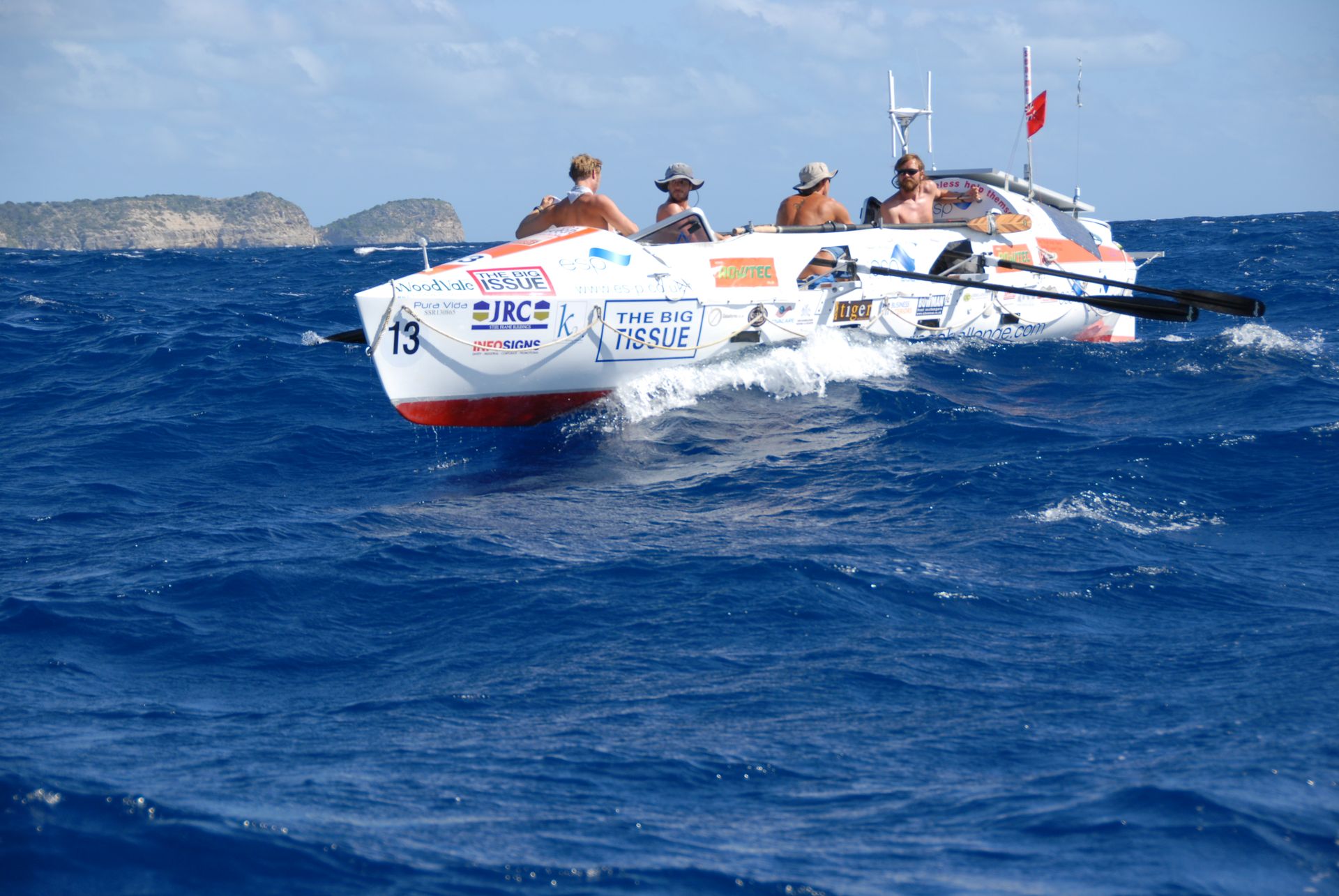
I completed the Atlantic Rowing Race with three friends as part of Team Pura Vida. But before we set off we had to prepare ourselves for at least 12 months. Once we had decided to take part in the race we started making lists of what needed to be done, we then divided that list up between us to give us a better chance of getting through everything. There were certain elements that we all had to do and where possible we would try and get these things done together. We all had to improve our fitness so we would meet at least one weekend a month to train together. Initially this involved getting a couple of rowing machines either at a gym or one of our houses. We would then row 2hrs on 2rhs off for 8-10 hrs on a Saturday and do the same on a Sunday. We often found ourselves in the pub on the Saturday nights and although it sounds counter productive to the training, getting hammered as a team brought us closer together and eventually proved invaluable during the race. We had some great nights out together and my memory of that preparation year is one of hard work and training, mixed with very boozy nights spent with very close mates. When I look back I view the preparation year as part of the whole experience, we had a great time, and I would recommend that any team should spend a similar amount of time preparing.
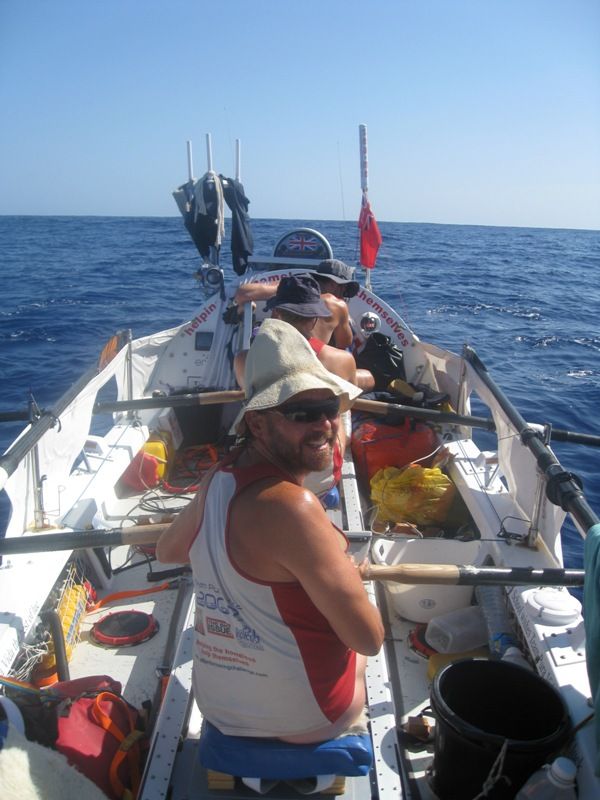
As well as fitness, we all had to learn how to row. Some of
us had a bit of rowing experience, but not in an Ocean Rowing Boat. We had our
boat built by a boat builder in Falmouth, the finished product was fantastic
but it took a little longer than expected to be finished. As soon as it was
even slightly seaworthy we moved our monthly get-togethers to Falmouth where we
could take the boat out. I would strongly recommend getting your boat as soon
as you can (you can either get one built, build your own using stringent
guidelines or buy a secondhand one), we were rowing ours around before it was
finished. You can spend time in the gym and on rowing machines but by far the
best way to train is to trial the boat. You get used to moving around it (a
skill in itself), cooking on board, using ‘the bucket’ and just generally
acclimitising yourself. You’ll get a good feel for the boat and can make
adjustment to the seating position etc. Our first big outing (we’d previously
just been rowing in circles around Falmouth Harbour) was from Falmouth to the
Scilly Isle. We were incredibly lucky with the weather but even so had a support
boat with us just in case, non of the electrics, nav, radio etc had yet been
fitted). The trip took 16 hrs and was very enjoyable. We arrived in St Mary to
find we had timed our trip with the Gig (old style rowing boat – used to be
used to deliver pilots to larger ships navigating into the harbours) World
Champs, so the tiny island was full of massive, drunk men from Cornwall and
Devon. We spent a great weekend on the island and had arguably one of our best
team drinking sessions before returning home on the rib (the boat came back on
the ferry). As a training weekend I would highly recommend this to any UK based
rowers.
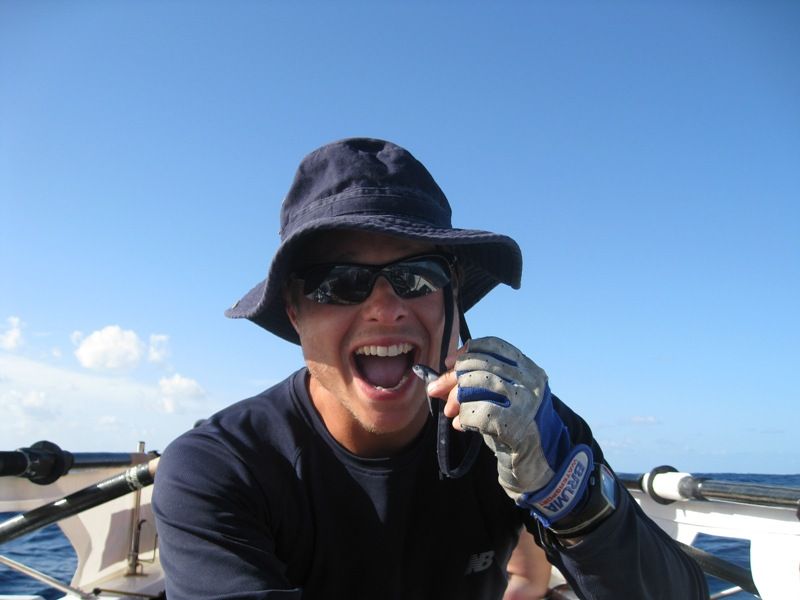
Our other major row was completed a few months later when we
took the boat around the Isle of Wight. The loop we did was about 72 miles,
which we did in (just) under 24 hrs which we were very happy with. It would
have been good to have done more longer rows like the two I’ve mentioned but as
always, time was the issue. Still we felt that we were fairly well prepared –
some of the competitors hadn’t set foot in their boat until the start of the
race.In addition to training together we would try and sit all relevant exams
and tests together. You need you RYA Ocean Master Theory Certificate to enter
the race. We did ours in Southampton and took a week of work so we could do it
as a team. We organized the course
through Woodvale (the race organizers) so everyone else on the course were
fellow competitors, which made it more enjoyable. The qualification itself is
fairly pointless. It would be far better to complete a Coastal Skipper course
where you learn about the basics of nav and other useful nautical elements.
Ocean Masters is all about navigating using the stars, it’s very advanced and
not really that practical for our needs, however Spanish Authorities stipulate
it has to be the Ocean Masters, and as the race starts in their waters, we had
no choice.
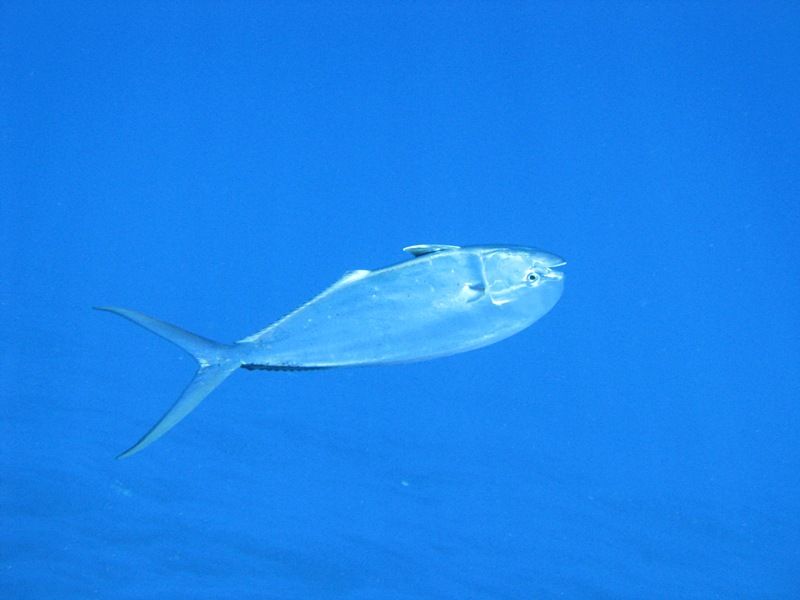
There are other 1-day courses that are required, e.g. Safety
at Sea and First Aid at Sea. As two of us lived in London and the other two lived
in the midlands we ended up sitting these courses individually or in
pairs. We also had to do most of our
training as individuals. We tried to keep the routeens similar (we did an hr or
so of weights in the morning before work then and hr or two on the rowing
machine in the evenings after work). We would set different rowing challenges
on the rowing machines then email our times around the following morning. It
made us feel more like we were training together.
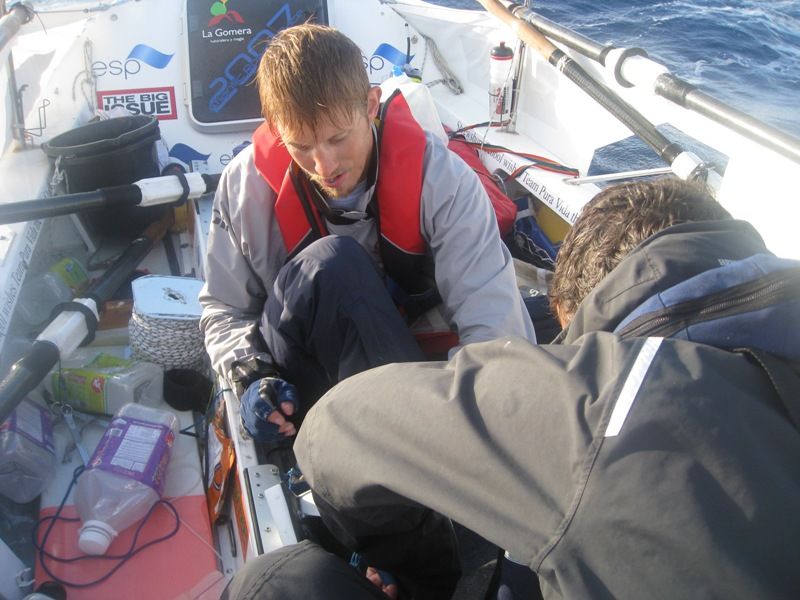
Other individual tasks were also broken down. One of the
lads took responsibility for all food and nutrition, another guy managed the
build of the boat (including the shipping of it to the start line and back from
the finish), another area was creation of marketing materials to help publicise
our expedition and raise money both for us and the charity. There is a
staggering amount of equipment outlined in the race rules so obtaining this was
another task. We would all help each
other out where possible but ultimately one person would be responsible for
managing each area. We had weekly conference calls to discuss progress and were
in regular contact via email.
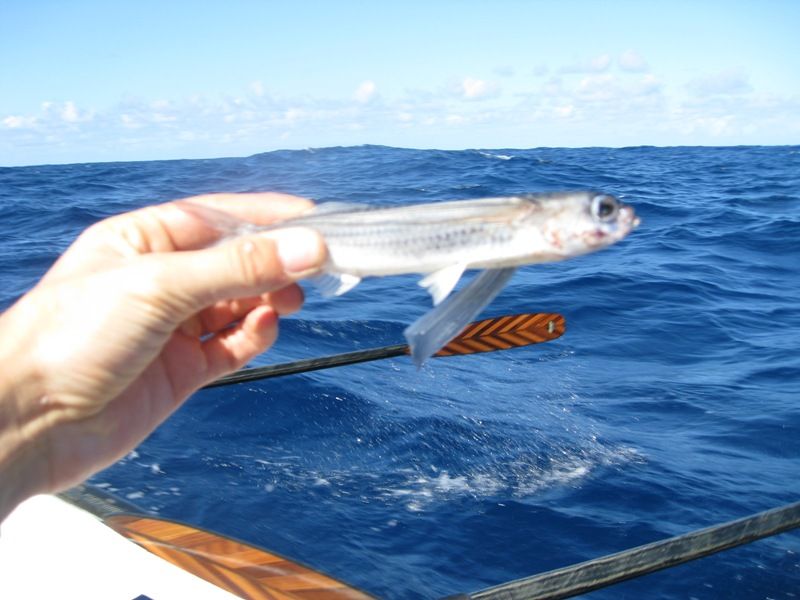
We shipped the boat out to La Gomera about one month before
we arrived out there in Nov. We got there 2 weeks before the start and although
the boat was fairly well prepared we needed every minute to get everything
ready. Before the start the race organizers check all boats to make sure every
piece of required kit is onboard. They have some fairly stringent requirements
and if you’re missing kit or certain bits of equipment are not stored in the
correct place then they have the right to pull you out of the race. The time in
La Gomera gave us a good chance to meet the other competitors (some for the first
time). There is a bar in the town that ocean rowers have traditionally gone to
party in the evenings. Our crew had been off the booze for a few months before
the race so it was even more enjoyable to get drunk with the other competitors.
The two weeks before the start passed quickly, it was hectic but we got there.
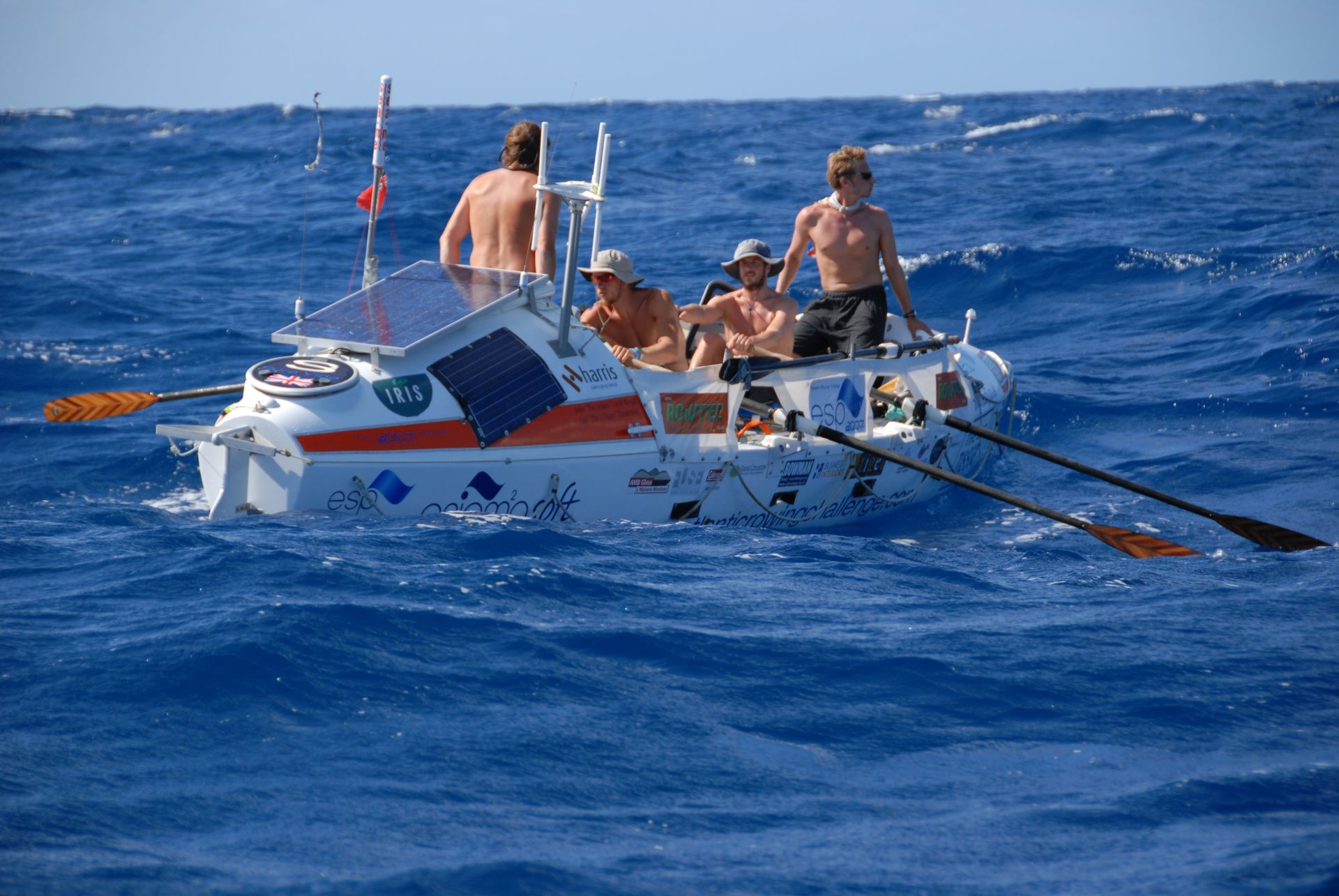
When I think about the morning of race day, I still feel the
nerves to some degree. The culminations of 1 yrs preparation was coming to
fruition and there was a strong feeling of stepping into the unknown. No matter
how much practice we had done, we knew it would be nothing like the real thing.
I opened my hotel room door to one of my team mates blowing raspberries and
pretending to poo his pants, it summarized how I felt quite accurately. The
boat had been lifted into the water a couple of days before. We spend the
morning tweaking the boat and frantically reading the manuals on how to operate
the nav / gps before being told to head to the start.
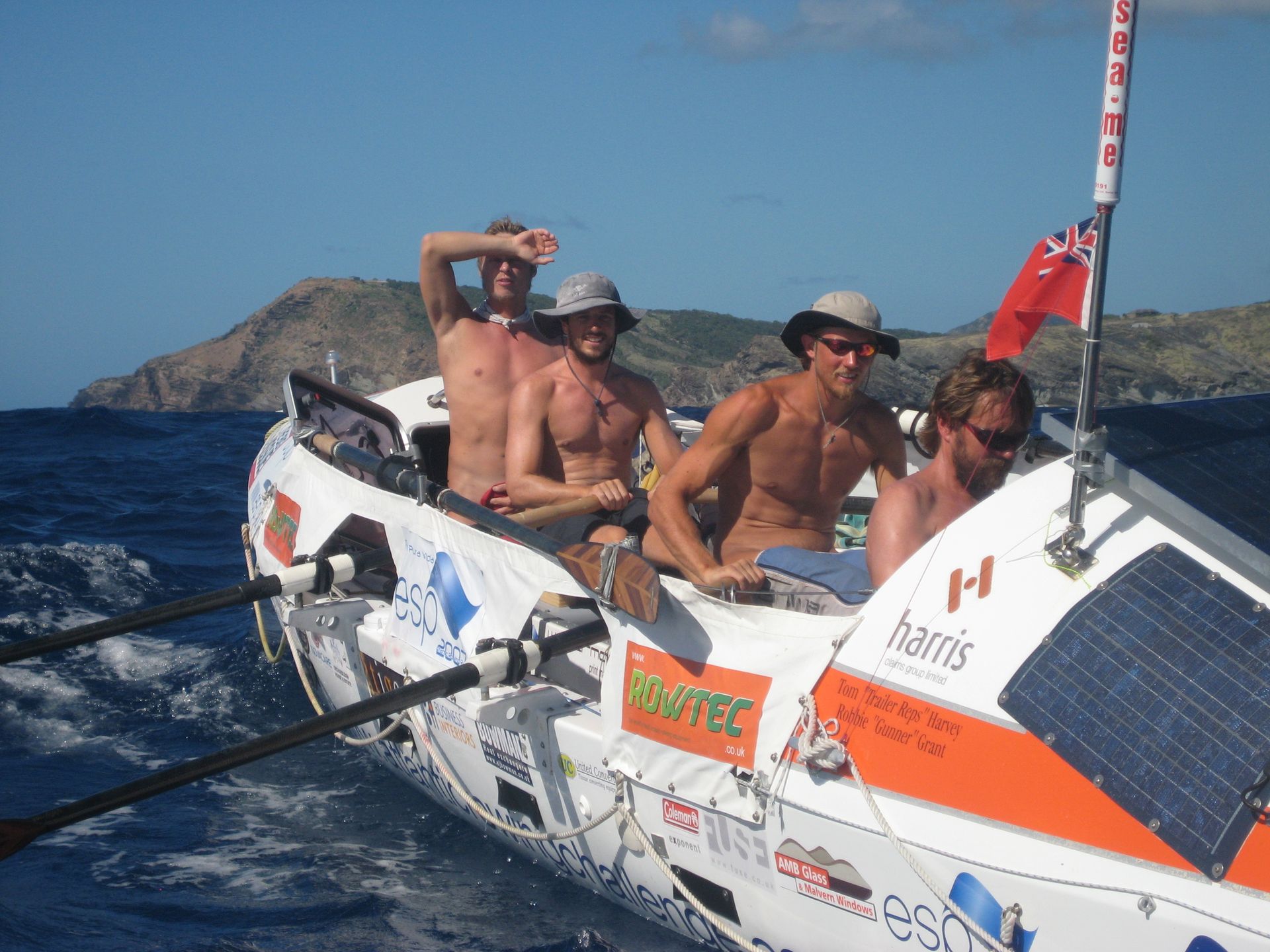
Again, just writing about this 3 yrs later, is bringing back
some of the excitement and anticipation I felt on the day. As we pulled the
boat through the harbour to the start line we felt pretty special. Just before
when all 28 boats were out are ready to go it was a spectacular site. The gun went
and we were off. It doesn’t exactly look like the stat of a grand prix as we
were moving along at about 3 knts, but even so it’s a magical thing to be part
of. Although it’s a race, we all understood that in a few hrs all the boats
would be out of site against each other and it would almost become an endurance
test for each individual crew. With that in mind there is a strong sense of
friendship between the crews and we would shout messages of good luck to anyone
in earshot.
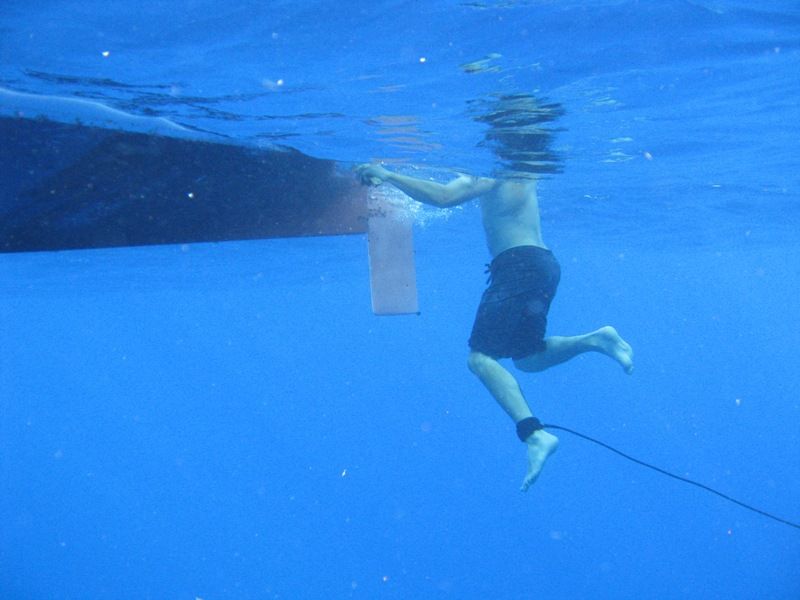
After a couple of hrs, although land was clearly in site and
would be until the afternoon of the next day, the excitement of the start fell
away and we looked to what lay ahead. We got straight into the shift patterns
and tried to adopt our routine as soon as possible. We had decided to use a
rather unique shift pattern, we did 1hr on 1 hr off during the day, 2hrs on
2hrs off during the night with 1.5hr shifts in between. We had reasons for
this, basically during the day it was so hot that rowing for more than an hr
was exhausting, but we needed the longer shifts at night to get some sort of
sleep. Other crews did 2hrs on 2hrs off round the clock. Some did 2hrs on 2hrs
off during the day and 4hrs on 4hrs off at night, it’s personal, and you’ll
have to work it out for yourself.

On a four boat 2 crew can share the front cabin and 2 share the back (on a 2 there is only one cabin at the back). I was in the front cabin to start with (although every 10 days we swapped cabins and rowing partners to mix it up a bit – I would highly recommend this) and both myself and the Tom who was sharing the cabin with me were quite seasick (the two guys in the back cabin seemed ok). Luckily one of the race organizers had told us to eat peaches for the first couple of days as they taste as good coming back up as they do when you eat them, which is actually true.
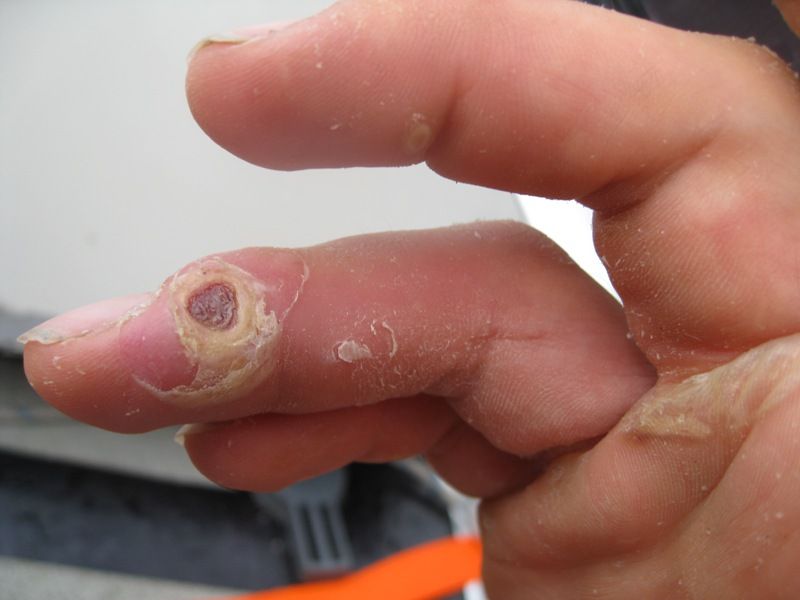
To summarize our race, we took the option of going South to
try and find the trade winds. If you can get into these winds you benefit from
a strong tail wind that helps blow you across. We went the farthest south by
miles, which initially put us quite far down the fleet (as most others were
following the more westerly ‘rumb line’ heading more directly towards the
finish line). We waited in vain for the Trade Winds to appear; in fact they
never did appear so we went a long way out of our way for nothing. We got into
our routens, we rowed hard and very rarely stopped (on days when it was
extremely hot 40 degree plus, we allow ourselves 10 mins in the water to cool
down at midday, we also jumped in every couple of days to clean the bottom of
the boat, otherwise it would get covered in ‘pollips’ little plants that open
out like a parachute at dusk which makes you feel like you’re rowing through
treacle. We carried on throughout Christmas Day and NY Day (some crews chose to
take these days off and relax but we didn’t really see the point – we wanted to
just get there). We started clawing our way up the fleet until on day we found
ourselves in first place. Obviously before the start we wanted to do well, but
this was a great feeling and very motivating.
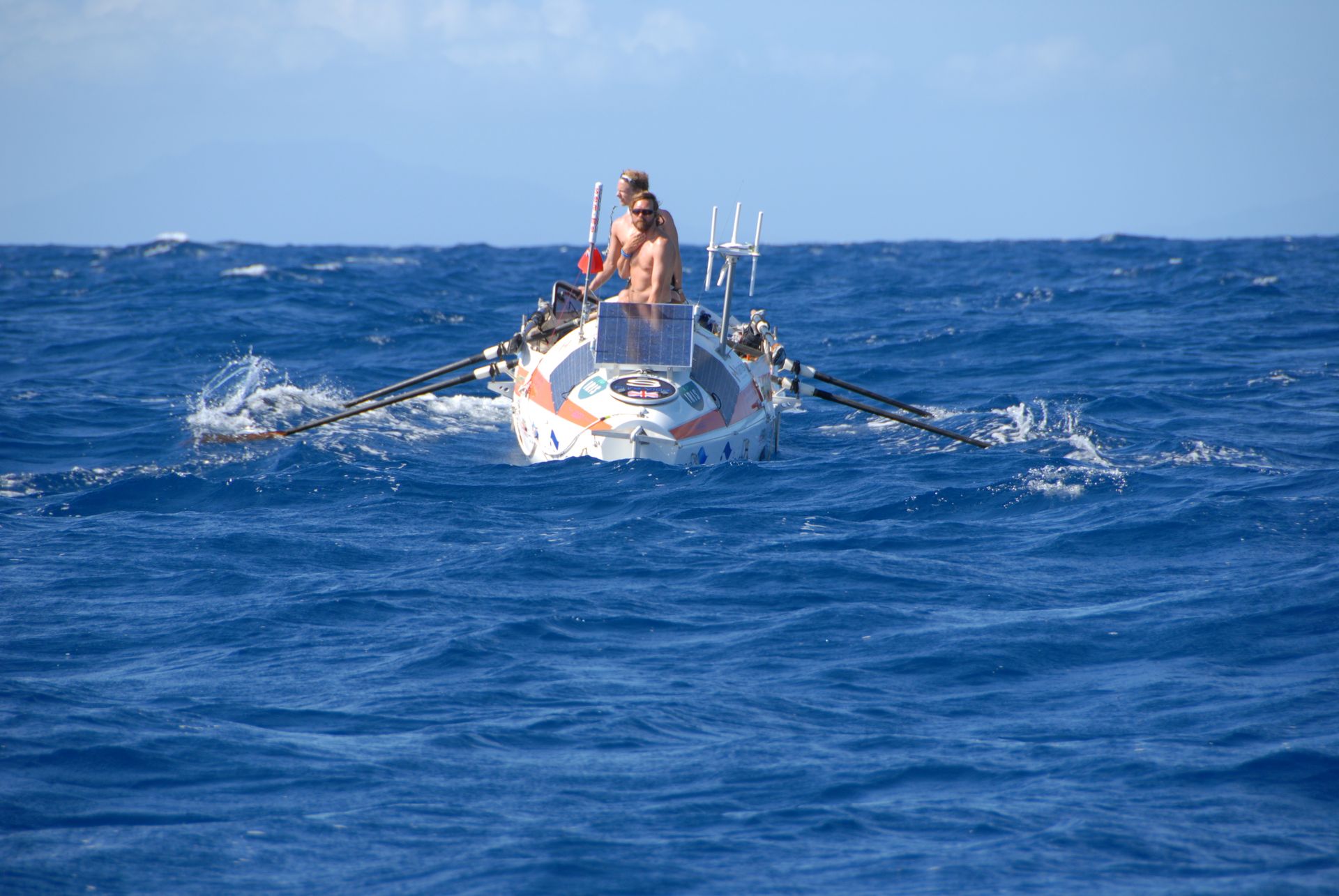
Our crossing like all others was a mixture of beautiful
weather, extreme heat, storms, lighting, stunning sunrises and sunsets, extreme
exhaustion, narrow misses of container ships, repetitive food and all of the
other things that go to make the experience the best and worst thing I’ve ever
done. We all suffered from sours on our backsides, some worse than others. One
guys was consuming vast amounts of Tramadol (morphine based pain killer) by the
end of the race as he felt like he was sitting on hot coals. He was the biggest
guy in our crew. Quite often the bigger guys het the worse sores as they have
more weight pressing down on their seat.
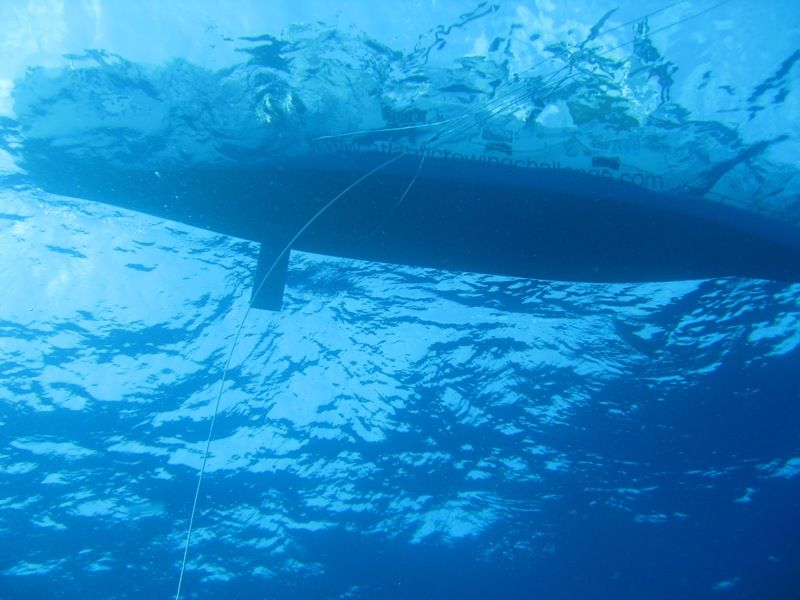
As we neared the end it looked more and more likely that we
would win. It was a great feeling and probably motivated us to row hard right
to the end. The first site of land was incredible. It was at night and we saw
lights on the horizon. It was then just a case of hanging on.
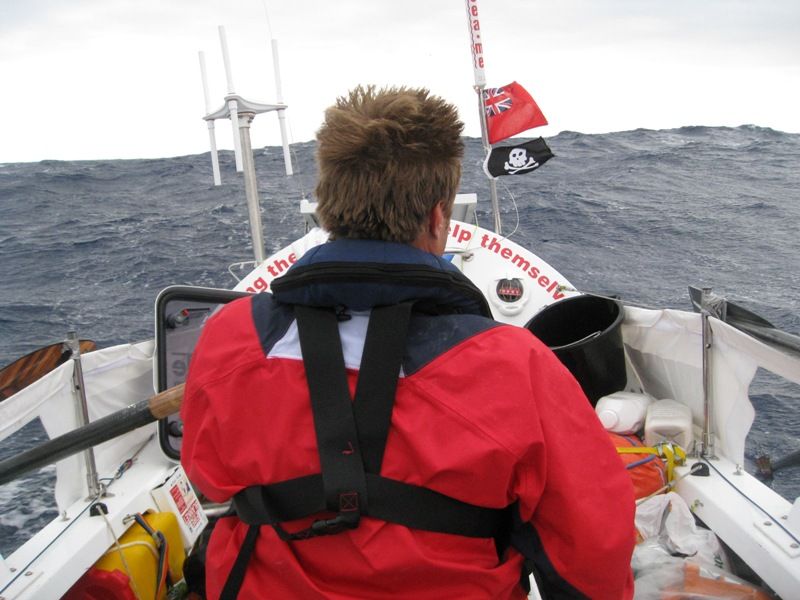
We eventually crossed the line at around 11am the following
morning. The race organizer came and lead us into English Harbour in Antigua.
As we rowed through the harbour all of the boats moored there started letting
of horns and there were crowds lining the shores all cheering. It was quite an
incredible feeling.
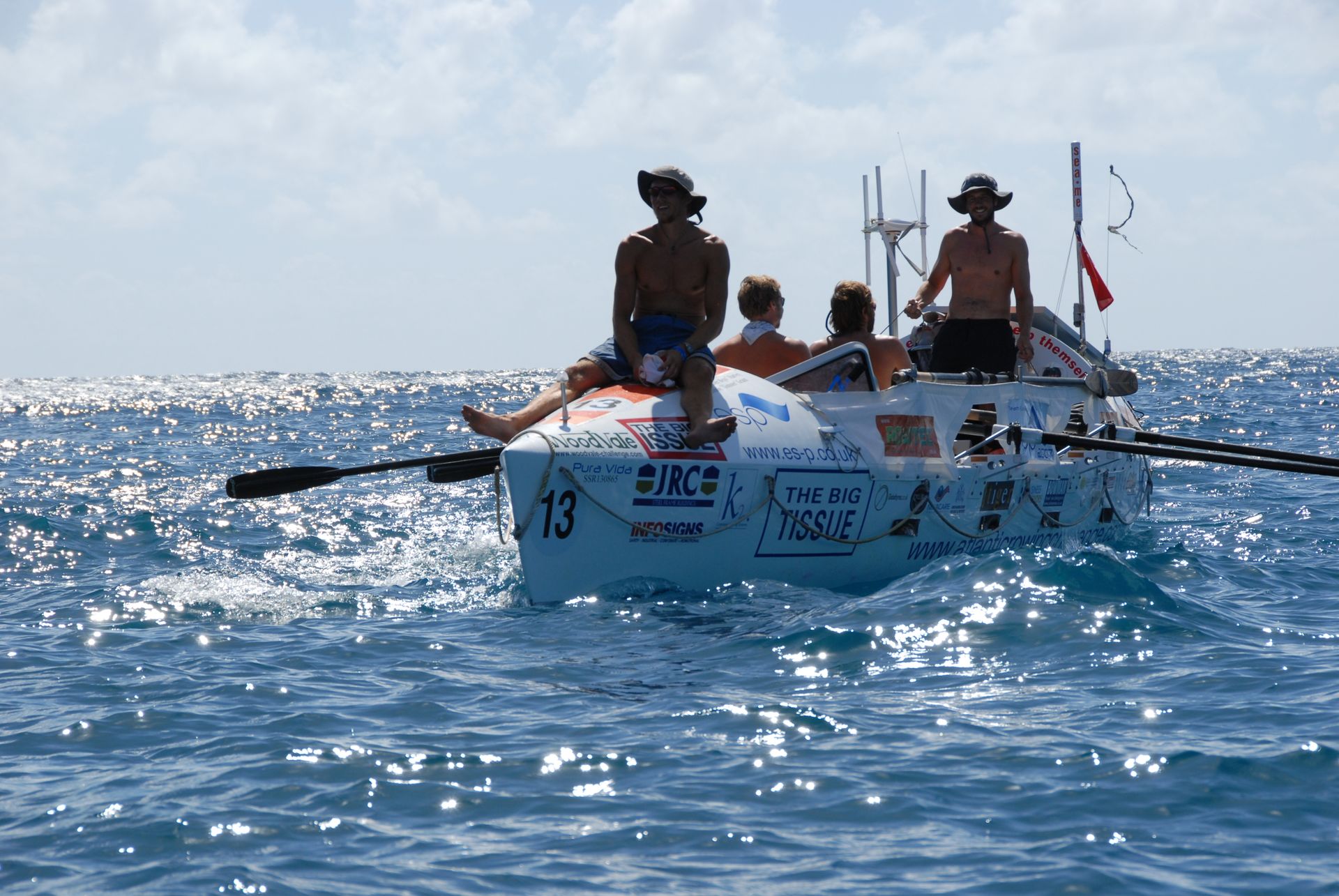
As I said at the start I would recommend this adventure to
anyone. It isn’t something I would necessarily repeat (but some people do), but
it’s great to have done it once. The feeling of crossing the line was unlike
anything else I’ve experienced, truly special. The words above are just
designed to give you an overview of what we went through to get to the finish,
but to write about everything in detail would require a lot more time. If
you’re thinking about rowing an Ocean, then I can’t recommend it highly enough.
